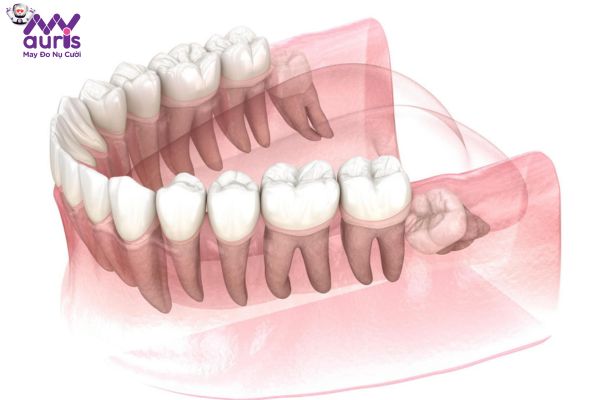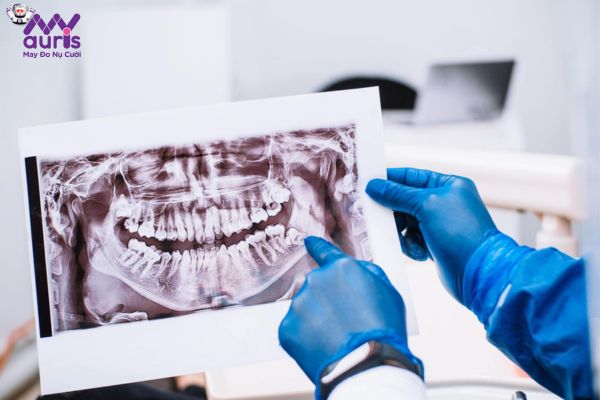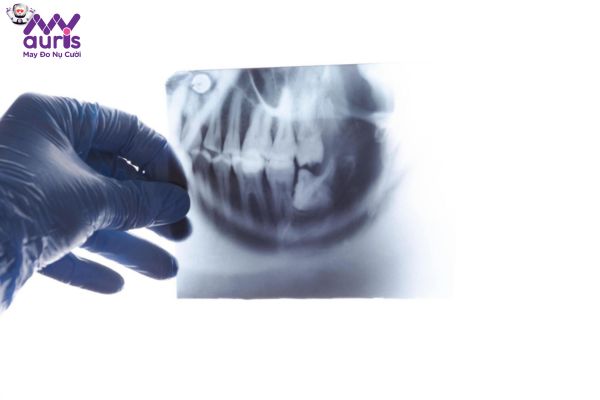Wisdom teeth, also known as teeth number 8, often grow quite late. At the same time, they not only do not have the basic function of crushing food, but sometimes also cause you to encounter some oral health problems. Wisdom tooth extraction is a solution that helps end pain and prevent complications, chosen by many people. So is wisdom tooth extraction dangerous? What should you pay attention to after extraction? Please refer to the following article, doctor My Auris will help you answer in detail.
Is wisdom tooth extraction dangerous?
The growth position and shape of wisdom teeth will be different from normal teeth. Therefore, wisdom tooth extraction is also more difficult. However, whether wisdom tooth extraction is dangerous or not, it actually has no negative effects. But it will depend on a number of factors such as: The tooth extraction technique of the doctor, each person’s constitution,…

- Nervous factors: Growing teeth often grow close to nerves such as the maxillary nerve, mandibular nerve, ophthalmic nerve, etc. Therefore, in many cases, after wisdom tooth extraction, there will be a feeling of numbness in the tip of the tongue, lips, cheeks, etc. This is the effect of the nerves when tooth extraction occurs, but it is still mild. Therefore, in fact, wisdom tooth extraction does not affect the nerves, the symptoms will completely disappear after a few days.
- Adjacent teeth: Tooth number 7 is the tooth adjacent to the wisdom tooth, it is the molar responsible for the function of chewing and crushing food. At the same time, tooth number 7 is also directly affected if wisdom teeth have problems. Although wisdom teeth affect tooth number 7, wisdom tooth extraction will not affect tooth number 7. It even helps protect tooth number 7 from dangerous complications.
In short, wisdom tooth extraction is a procedure that does not affect the health or adjacent nerves. On the other hand, wisdom tooth extraction also helps protect neighboring teeth from the negative effects of these teeth, ensuring good chewing ability.
Is wisdom tooth extraction painful?
Even though doctors know that wisdom tooth extraction is dangerous, the answer is NO. But many patients still cannot avoid being afraid of the pain of tooth extraction. In fact, for experienced doctors, wisdom tooth extraction is just a small, painless procedure.
Before starting the procedure, the doctor will administer local anesthesia to ensure the patient does not feel uncomfortable.lump or pain during the tooth extraction process. Patients often only feel the tooth being gently pressed forward or backward by the doctor, but will not feel pain.
Even in cases where the teeth are crooked and require surgical incision to open the gums, the wisdom teeth will be cut into parts before extraction. The doctor will stitch the gums back so that the patient does not feel uncomfortable.
Basically, whether wisdom tooth extraction is painful or not depends on the combination of anesthesia, dental technique and doctor’s skills. Most of the time, the tooth extraction process only takes a few minutes. However, teeth growing in positions that are difficult to extract will take more time, about 20 to 40 minutes.
When should wisdom teeth extraction be performed?
The reason your doctor prescribes wisdom tooth extraction is because it often grows in unfavorable positions, or when the jaw bone has run out of space and the wisdom tooth is located too deep in the jaw. When wisdom teeth grow, they are very difficult to clean and create a favorable environment for bacteria to grow, multiply and increase the risk of tooth decay and gingivitis.

Currently, there have been many cases of wisdom teeth growing but subjectively, not removed and not treated promptly. Therefore, it causes the infection to spread to surrounding areas.
- Carefully removing wisdom teeth when they grow causes complications such as pain, repeated infections, and affecting neighboring teeth.
- When wisdom teeth do not cause complications but there is a gap for food. Even if it will affect neighboring teeth, they should be removed to prevent complications.
- When wisdom teeth grow straight, have enough space, are not obstructed by bone or gums, but there is no opposing tooth to fit. This can cause wisdom teeth to grow into the opposite jaw, creating a ladder between the teeth, causing food clogging, etc., so they need to be removed.
- Wisdom teeth grow straight, have enough space, are not obstructed, but are irregularly shaped, small, deformed, causing food clogging. Over time, it will cause tooth decay and periodontitis on adjacent teeth.
- Wisdom teeth have periodontal disease, tooth decay, the patient needs orthodontics and dentures.
- Wisdom teeth are the cause of a number of other systemic diseases.
Not all wisdom teeth need to be extracted. They can be preserved in the following cases:
- Patients with chronic diseases such as bleeding disorders, cardiovascular disease, diabetes,…
- Wisdom teeth are directly related to a number of important structures such as nerves, maxillary sinuses,…
Should extraction be performed? 4 wisdom teeth at the same time?
Because wisdom teeth are located deep in the jaw, it is often difficult to avoid plaque and food, accumulating harmful bacteria. Even wisdom teeth growing deep under the gum tissue can cause similar dangerous problems.

Normally, wisdom tooth extraction is easier when performed on young people. Because the tooth roots have not yet fully formed, the surrounding bone is softer and there is less risk of damaging nerves or adjacent tooth structures. The risk of post-operative complications is more common in adults. Extracting 4 teeth at the same time will help the patient:
- Saves travel time.
- Shorts wound recovery time.
- Proper care of remaining wisdom teeth requires regular check-ups and X-rays.
- Avoid negatively affecting neighboring teeth.
Therefore, you need a doctor to advise you on whether to extract 4 wisdom teeth at the same time or not before treatment.
What should you note after wisdom tooth extraction?
Is wisdom tooth extraction dangerous? The answer is NO. However, it is only guaranteed to be safe when performed correctly. At the same time, after tooth extraction, you will need to note the following points:

- After tooth extraction, the patient needs to limit jaw muscle movement or talking. Because this can cause more bleeding.
- Do not touch the wound with your fingers, tongue or other objects. Avoid coughing, sneezing, blowing your nose, etc. Because this can cause irritation and bleeding from the wound.
- You should apply ice to help stop bleeding and reduce swelling. If the swelling and pain after wisdom tooth extraction gradually gets worse, antibiotics can be used. However, you need to take medicine as prescribed by your doctor.
- Gargle with salt water after meals and before going to bed. You can brush your teeth after 24 hours. However, you should avoid brushing your teeth at the area where the tooth was extracted.
- Pay attention to taking appropriate rest time: Within 2 days after tooth extraction, you need to avoid vigorous activities, only rest and sleep with high pillows.
- Build a suitable diet: Avoid hot, hard foods, etc. Instead, you should only eat foods that are easy to chew.
- You should immediately contact your doctor if any unusual signs occur.
Hopefully the above information can help you understand whether wisdom tooth extraction is dangerous. When there are signs of mild pain, you need to immediately see a doctor for appropriate treatment and extraction instructions. To avoid negative effects on health and spirit. At the same time, pay attention to follow the instructions of the specialist after tooth extraction so that the wound heals quickly!
Yen Nhi





